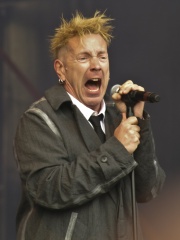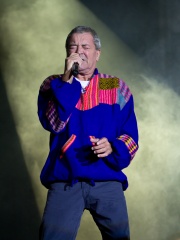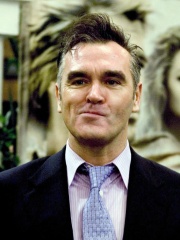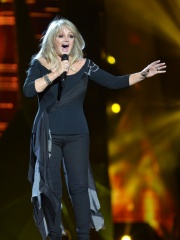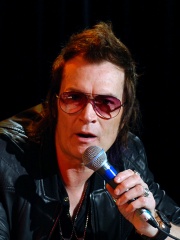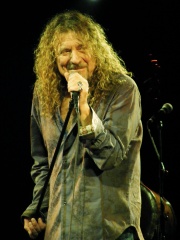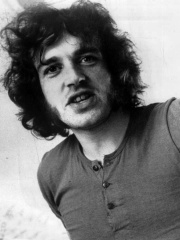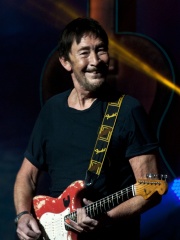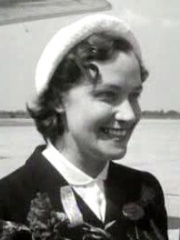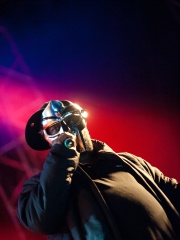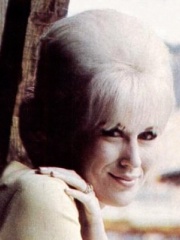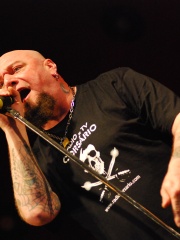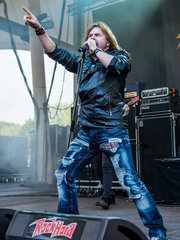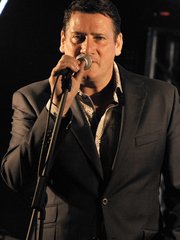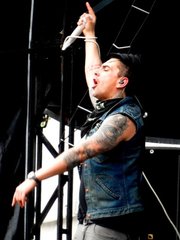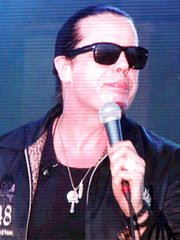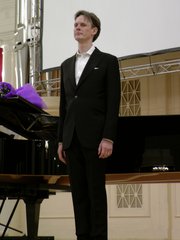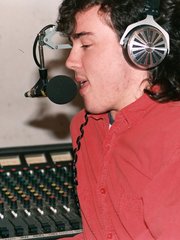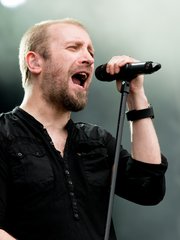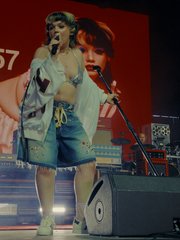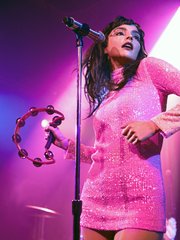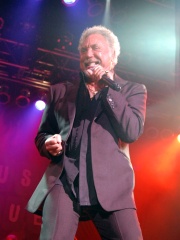
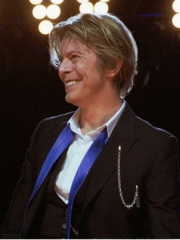
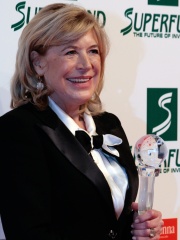
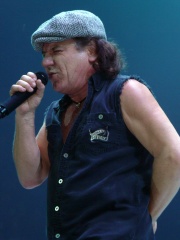
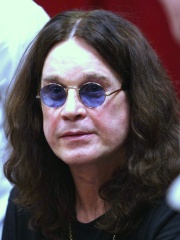
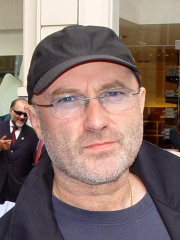

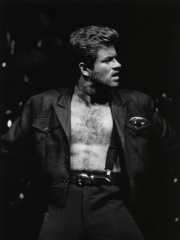
The Most Famous
SINGERS from United Kingdom
This page contains a list of the greatest British Singers. The pantheon dataset contains 4,381 Singers, 422 of which were born in United Kingdom. This makes United Kingdom the birth place of the 2nd most number of Singers.
Top 10
The following people are considered by Pantheon to be the top 10 most legendary British Singers of all time. This list of famous British Singers is sorted by HPI (Historical Popularity Index), a metric that aggregates information on a biography's online popularity. Visit the rankings page to view the entire list of British Singers.

1. Tom Jones (b. 1940)
With an HPI of 82.08, Tom Jones is the most famous British Singer. His biography has been translated into 58 different languages on wikipedia.
Sir Thomas Jones Woodward (born Thomas John Woodward; 7 June 1940) is a Welsh singer. His career began with a string of top 10 hits in the 1960s and he has since toured regularly, with appearances in Las Vegas from 1967 to 2011. His voice has been described by AllMusic as a "full-throated, robust baritone". Jones's performing range has included pop, R&B, show tunes, country, dance, soul, and gospel. In 2008, the New York Times called him a "musical shapeshifter [who could] slide from soulful rasp to pop croon, with a voice as husky as it was pretty". He has sold over 100 million records, with 36 Top 40 hits in the UK and 19 in the US, including "It's Not Unusual", "What's New Pussycat?", the theme song for the James Bond film Thunderball (1965), "Green, Green Grass of Home", "Delilah", "She's a Lady", "Sex Bomb", and a cover of Prince's "Kiss". Jones has also occasionally dabbled in acting, first making his debut in the lead role of the television film Pleasure Cove (1979). He also appeared as himself in Tim Burton's film Mars Attacks! (1996). In 1970, he received a Golden Globe Award for Best Actor – Television Series Musical or Comedy nomination for hosting the television series This Is Tom Jones. In 2012, he played his first dramatic acting role in an episode of Playhouse Presents. He received a Grammy Award for Best New Artist in 1966, an MTV Video Music Award in 1989, and two Brit Awards: Best British Male in 2000 and Outstanding Contribution to Music in 2003. He was made an Officer of the Order of the British Empire (OBE) in 1998 and was knighted by Queen Elizabeth II in 2006 for services to music. He experienced a resurgence in popularity in the 2010s due to his role as a coach on the talent show The Voice UK (2012–2015, 2017–present).

2. David Bowie (1947 - 2016)
With an HPI of 80.18, David Bowie is the 2nd most famous British Singer. His biography has been translated into 116 different languages.
David Robert Jones (8 January 1947 – 10 January 2016), known as David Bowie, was an English singer, songwriter and actor. Regarded as among the most influential musicians of the 20th century, Bowie received particular acclaim for his work in the 1970s. His career was marked by reinvention and visual presentation, and his music and stagecraft have had a great impact on popular music. Bowie studied art, music and design before embarking on a music career in 1962. He released a string of unsuccessful singles with local bands and a self-titled solo album (1967) before achieving his first top-five entry on the UK singles chart with "Space Oddity" (1969). After a period of experimentation, he re-emerged in 1972 during the glam rock era with the alter ego Ziggy Stardust. The single "Starman" and its album The Rise and Fall of Ziggy Stardust and the Spiders from Mars (1972) won him widespread popularity. In 1975, Bowie's style shifted towards a sound he characterised as "plastic soul", initially alienating many of his UK fans but garnering his first major US crossover success with the number-one single "Fame" and the album Young Americans (1975). In 1976, Bowie starred in the cult film The Man Who Fell to Earth and released Station to Station. In 1977, he again changed direction with the electronic-inflected album Low, the first of three collaborations with Brian Eno that came to be known as the Berlin Trilogy. "Heroes" (1977) and Lodger (1979) followed; each album reached the UK top-five and received critical praise. After uneven commercial success in the late 1970s, Bowie had three number-one hits: the 1980 single "Ashes to Ashes", its album Scary Monsters (and Super Creeps) and "Under Pressure" (a 1981 collaboration with Queen). He achieved his greatest commercial success in the 1980s with Let's Dance (1983). Between 1988 and 1992, he fronted the hard rock band Tin Machine. Throughout the 1990s and 2000s, Bowie continued to experiment with musical styles, including industrial and jungle. He also continued acting; his films included Merry Christmas, Mr. Lawrence (1983), Labyrinth (1986), Twin Peaks: Fire Walk with Me (1992), Basquiat (1996), and The Prestige (2006). He retired from touring in 2004 and his last live performance was at a charity event in 2006. He returned from a decade-long recording hiatus in 2013 with The Next Day. His death in 2016 came two days after the release of his final studio album, Blackstar. During his lifetime, his record sales, estimated at over 100 million worldwide, made him one of the best-selling musicians of all time. He is the recipient of numerous accolades, including six Grammy Awards and four Brit Awards. Often dubbed the "chameleon of rock" due to his continual musical reinventions, he was inducted into the Rock and Roll Hall of Fame in 1996. Rolling Stone ranked him among the greatest singers, songwriters and artists of all time. As of 2022, Bowie was the best-selling vinyl artist of the 21st century.

3. Marianne Faithfull (1946 - 2025)
With an HPI of 79.01, Marianne Faithfull is the 3rd most famous British Singer. Her biography has been translated into 45 different languages.
Marianne Evelyn Gabriel Faithfull (29 December 1946 – 30 January 2025) was an English singer and actress who achieved popularity in the 1960s with the release of her UK top 10 single "As Tears Go By". She became one of the leading female artists of the British Invasion in the United States. Born in Hampstead, London, Faithfull began her career in 1964 after attending a party for the Rolling Stones, where she was discovered by the band's manager Andrew Loog Oldham. Her 1965 debut studio album Marianne Faithfull, released simultaneously with her studio album Come My Way, was a huge success and was followed by further albums on Decca Records. From 1966 to 1970 she had a highly publicised romantic relationship with Mick Jagger. Her popularity was enhanced by roles in films, including I'll Never Forget What's'isname (1967), The Girl on a Motorcycle (1968) and Hamlet (1969). Her popularity was overshadowed by personal problems in the 1970s, when she became anorexic, homeless and addicted to heroin. During her 1960s musical career, Faithfull was noted for her distinctive melodic, high-register vocals. In the subsequent decade her voice was altered by severe laryngitis and persistent drug abuse, which left her sounding permanently raspy, cracked and lower in pitch. The new sound was praised as "whisky soaked" by some critics and was seen as having helped to capture the raw emotions expressed in her music. After a long absence, Faithfull made a musical comeback in 1979 with the release of a critically acclaimed seventh studio album, Broken English. The album was a commercial success and marked a resurgence of her musical career. Broken English earned Faithfull a nomination for a Grammy Award for Best Female Rock Vocal Performance and is regarded as her "definitive recording". She followed this with a series of studio albums including Dangerous Acquaintances (1981), A Child's Adventure (1983) and Strange Weather (1987). Faithfull wrote three books about her life: Faithfull: An Autobiography (1994), Memories, Dreams & Reflections (2007) and Marianne Faithfull: A Life on Record (2014). Faithfull received the World Lifetime Achievement Award at the 2009 Women's World Awards, and in 2011 she was made a Commandeur of the Ordre des Arts et des Lettres by the government of France.

4. Brian Johnson (b. 1947)
With an HPI of 78.66, Brian Johnson is the 4th most famous British Singer. His biography has been translated into 44 different languages.
Brian Johnson (born 5 October 1947) is an English singer and songwriter. He is the third lead singer of the Australian rock band AC/DC, taking over the role in 1980 after the death of Bon Scott. Johnson is one of the founding members of the rock band Geordie, which was formed in Newcastle upon Tyne in 1971. After several hit singles, including the UK Top 10 hit "All Because of You" (1973), the band split in 1978. Following the death of Bon Scott on 19 February 1980, Johnson was asked to audition for AC/DC, whose guitarists and founders Angus and Malcolm Young remembered when Scott had been impressed with Johnson as Geordie's frontman. Johnson's first album with AC/DC, Back in Black, became the second-best-selling album of all time, according to most estimates. The Guardian ranked the successful transition to Johnson at No. 36 on their list of 50 key events in rock-music history. Johnson and the rest of the band were inducted into the Rock and Roll Hall of Fame in 2003. In March 2016, he temporarily left the band during the Rock or Bust World Tour because of hearing problems. In September 2020, AC/DC confirmed that Johnson, along with bandmates Phil Rudd and Cliff Williams, had rejoined the group in August 2018 to record the album Power Up. Johnson is known for his distinctive singing voice and strong Geordie accent. In July 2014, he was awarded an honorary degree of Doctor of Music by Northumbria University in Newcastle in recognition of his significant contribution to the music industry.
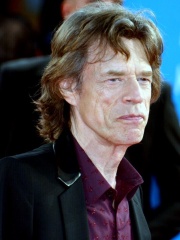
5. Mick Jagger (b. 1943)
With an HPI of 77.49, Mick Jagger is the 5th most famous British Singer. His biography has been translated into 83 different languages.
Sir Michael Philip Jagger (born 26 July 1943) is an English musician, songwriter, and film producer. He is the lead singer and one of the founder members of the Rolling Stones. Jagger has co-written most of the band's songs with lead guitarist Keith Richards; their songwriting partnership is one of the most successful in rock music history. His career has spanned more than six decades, and he has been widely described as one of the most popular and influential front men in the history of rock music. His distinctive voice and energetic live performances, along with Richards's guitar style, have been the Rolling Stones' trademark throughout the band's career. Early in his career, Jagger gained notoriety for his romantic involvements and illicit drug use, and has often been portrayed as a countercultural figure. Jagger was born and grew up in Dartford. He studied at the London School of Economics before abandoning his studies to focus on his career with the Rolling Stones. In the early 1970s, Jagger starred in the films Performance (1970) and Ned Kelly (1970), to mixed receptions. Beginning in the 1980s, he released a number of solo works, including four albums and the single "Dancing in the Street", a 1985 duet with David Bowie that reached No. 1 in the UK and Australia and was a top-ten hit in other countries. In the 2000s, Jagger co-founded a film production company, Jagged Films, and produced feature films through the company beginning with the 2001 historical drama Enigma. He was also a member of the supergroup SuperHeavy from 2009 to 2011. Although relationships with his bandmates, particularly Richards, deteriorated during the 1980s, Jagger has always found more success with the Rolling Stones than with his solo and side projects. He was married to Bianca Pérez-Mora Macias from 1971 to 1978, and has had several other relationships; he has eight children with five women. In 1989, Jagger was inducted into the Rock and Roll Hall of Fame and, in 2004, into the UK Music Hall of Fame with the Rolling Stones. As a member of the Rolling Stones and as a solo artist, he reached No. 1 on the UK and US singles charts with 13 singles, the top 10 with 32 singles and the top 40 with 70 singles. In 2003, he was knighted for his services to popular music. Jagger is credited with being a trailblazer in pop music and with bringing a style and sex appeal to rock and roll that have been imitated and proven influential with subsequent generations of musicians.

6. Ozzy Osbourne (1948 - 2025)
With an HPI of 76.29, Ozzy Osbourne is the 6th most famous British Singer. His biography has been translated into 74 different languages.
John Michael "Ozzy" Osbourne (3 December 1948 – 22 July 2025) was an English singer, songwriter, and media personality. Dubbed the "Prince of Darkness", he is widely credited as a pioneer of heavy metal music. He co-founded the band Black Sabbath in 1968, and rose to prominence in the 1970s as their lead vocalist. He performed on the band's first eight studio albums, including Black Sabbath, Paranoid (both 1970) and Master of Reality (1971), before he was fired in 1979 due to his problems with alcohol and other drugs. Osbourne began a solo career in the 1980s and formed his band with Randy Rhoads and Bob Daisley, with whom he recorded the albums Blizzard of Ozz (1980) and Diary of a Madman (1981). Throughout the decade, he drew controversy for his antics both onstage and offstage, and was accused of promoting Satanism by the Christian right. Overall, Osbourne released thirteen solo studio albums, the first seven of which were certified multi-platinum in the United States. He reunited with Black Sabbath on several occasions. He rejoined from 1997 to 2005, and again in 2012; during this second reunion, he sang on the band's last studio album, 13 (2013), before they embarked on a farewell tour that ended in 2017. On 5 July 2025, Osbourne performed his final show at the Back to the Beginning concert in Birmingham, having announced that it would be his last due to health issues. Although he intended to continue recording music as a solo artist, he died 17 days later. Osbourne sold more than 100 million albums, including his solo work and Black Sabbath releases. He was inducted into the Rock and Roll Hall of Fame as a member of Black Sabbath in 2006 and as a solo artist in 2024. He was also inducted into the UK Music Hall of Fame both solo and with Black Sabbath in 2005. He was honoured with stars on the Hollywood Walk of Fame on 12 April 2002 and Birmingham Walk of Stars on 6 July 2007. At the 2014 MTV Europe Music Awards, he received the Global Icon Award. In 2015, he received the Ivor Novello Award for Lifetime Achievement from the British Academy of Songwriters, Composers and Authors. Osbourne's wife and manager Sharon founded the heavy metal touring festival Ozzfest, which was held yearly from 1996 to 2010. In the early 2000s, he became a reality television star when he appeared in the MTV reality show The Osbournes (2002–2005) alongside Sharon and two of their children, Kelly and Jack. He co-starred with some of his family in the television series Ozzy & Jack's World Detour (2016–2018) as well as The Osbournes Want to Believe (2020–2021).

7. Phil Collins (b. 1951)
With an HPI of 76.12, Phil Collins is the 7th most famous British Singer. His biography has been translated into 81 different languages.
Philip David Charles Collins (born 30 January 1951) is an English singer, drummer, songwriter, record producer and actor. He was the drummer and later became the lead singer of the rock band Genesis and had a successful solo career, achieving three UK number-one singles and seven US number-one singles as a solo artist. In total, his work with Genesis, other artists and solo resulted in more US top-40 singles than any other artist throughout the 1980s. His most successful singles from the period include "In the Air Tonight", "Against All Odds (Take a Look at Me Now)", "One More Night", "Sussudio", "Another Day in Paradise", "Two Hearts" and "I Wish It Would Rain Down". Born and raised in West London, Collins began playing drums at the age of five. During the same period he attended drama school, which helped secure various roles as a child actor. His first major role was the Artful Dodger in the West End production of the musical Oliver!. As an accomplished professional actor by his early teens, he pivoted to pursue a music career, becoming the drummer for Genesis in 1970. He took over the role of lead singer in 1975 following the departure of Peter Gabriel. During the second half of the 1970s, in between Genesis albums and tours, Collins was the drummer of jazz rock band Brand X. While continuing to perform and record with Genesis, Collins began a successful solo career in the 1980s, initially inspired by his marital breakdown and love of soul music, releasing the albums Face Value (1981), Hello, I Must Be Going (1982), No Jacket Required (1985) and ...But Seriously (1989). Collins became, in the words of AllMusic, "one of the most successful pop and adult contemporary singers of the '80s and beyond". He became known for a distinctive gated reverb drum sound on many of his recordings. He played drums on the 1984 charity single "Do They Know It's Christmas?" and, in July 1985, he was the only artist to perform at both Live Aid concerts. He resumed his acting career, appearing in Miami Vice and subsequently starring in the film Buster (1988). Collins left Genesis in 1996 to focus on solo work; this included writing songs for Disney's animated film Tarzan (1999), for which he wrote and performed the songs "Two Worlds", "Son of Man", "Strangers Like Me" and "You'll Be in My Heart", the last of which earned him the Academy Award for Best Original Song. He rejoined Genesis for their Turn It On Again Tour in 2007. Following a five-year retirement to focus on his family life, Collins released his memoir in 2016 and conducted the Not Dead Yet Tour from 2017 to 2019. He then rejoined Genesis in 2020 for a second and final reunion tour, which ran from 2021 to 2022. Collins's discography includes eight studio albums that have sold 33.5 million certified units in the US and an estimated 150 million records sold worldwide, making him one of the world's best-selling artists. He is one of only three recording artists, along with Paul McCartney and Michael Jackson, who have sold over 100 million records both as solo artists and separately as principal members of a band. He has won eight Grammy Awards, six Brit Awards (winning Best British Male Artist three times), two Golden Globe Awards, one Academy Award and a Disney Legend Award. He was awarded six Ivor Novello Awards from the British Academy of Songwriters, Composers and Authors, including the International Achievement Award. He received a star on the Hollywood Walk of Fame in 1999 and was inducted into the Songwriters Hall of Fame in 2003 and the Rock and Roll Hall of Fame as a member of Genesis in 2010. Ranked by Rolling Stone at number 43 in the 100 Greatest Drummers of All Time, he was inducted into the Modern Drummer Hall of Fame in 2012 and the Classic Drummer Hall of Fame in 2013.

8. Kate Bush (b. 1958)
With an HPI of 75.15, Kate Bush is the 8th most famous British Singer. Her biography has been translated into 63 different languages.
Catherine Bush (born 30 July 1958) is an English singer, songwriter, musician, dancer, and record producer. She is noted for her eclectic musical style and unconventional lyrics, as well as her innovative dance performances. Her sound and choreography have influenced a range of artists. Bush began writing songs when she was 11. She was signed to EMI Records after David Gilmour of Pink Floyd helped finance a demo tape. In 1978, at the age of 19, she topped the UK Singles Chart for four weeks with her debut single "Wuthering Heights", becoming the first female artist to achieve a UK number one with a fully self-written song. Her debut studio album, The Kick Inside (1978), reached number three on the UK Albums Chart. Bush was the first British solo female artist to top the UK Albums Chart and the first female artist to enter it at number one. All nine of her studio albums have reached the UK top 10, including the number-one albums Never for Ever (1980), Hounds of Love (1985), and the greatest-hits compilation The Whole Story (1986). Since The Dreaming (1982), she has produced all of her studio albums. She took a hiatus between her seventh and eighth albums, The Red Shoes (1993) and Aerial (2005). Her latest albums, Director's Cut and 50 Words for Snow, were both released in 2011. Bush has released 25 UK top 40 singles, including the top-10 hits "The Man with the Child in His Eyes" (1978), "Babooshka" (1980), "Running Up That Hill" (1985), "Don't Give Up" (a 1986 duet with Peter Gabriel), and "King of the Mountain" (2005). She experienced renewed attention in 2014 with her concert residency Before the Dawn—her first shows since the Tour of Life in 1979—and in 2022 after "Running Up That Hill" appeared in the Netflix series Stranger Things. That song, when re-released in 2022, became Bush's second UK number one single and her highest entry on the US Billboard Hot 100 at number three, in addition to topping several international charts. Hounds of Love also had a commercial resurgence, topping two Billboard charts and reaching number twelve on the Billboard 200. Bush has received numerous accolades and honours, including 14 Brit Award nominations and a win for British Female Solo Artist in 1987, as well as seven nominations for Grammy Awards. In 2002, she received the Ivor Novello Award for Outstanding Contribution to British Music. She was appointed a Commander of the Order of the British Empire (CBE) in the 2013 New Year Honours for services to music. She became a Fellow of the Ivors Academy in the UK in 2020, and was inducted into the Rock and Roll Hall of Fame in 2023.

9. George Michael (1963 - 2016)
With an HPI of 74.39, George Michael is the 9th most famous British Singer. His biography has been translated into 88 different languages.
George Michael (born Georgios Kyriacos Panayiotou; 25 June 1963 – 25 December 2016) was an English singer-songwriter and record producer. Regarded as a pop culture icon, he is one of the best-selling recording artists of all time. Michael was known as a creative force in songwriting, vocal performance, and visual presentation. He was inducted into the Rock and Roll Hall of Fame in 2023. Born in East Finchley, Middlesex, Michael rose to fame after forming the pop duo Wham! with Andrew Ridgeley in 1981. He took part in Band Aid's UK number-one single "Do They Know It's Christmas?" in 1984 and performed at the following year's Live Aid concert. His debut studio album, Faith (1987), won the Grammy Award for Album of the Year and became one of the best-selling albums of all time, having sold over 25 million copies worldwide. Michael then went on to release a series of multimillion-selling albums, including Listen Without Prejudice Vol. 1 (1990), Older (1996), Ladies & Gentlemen: The Best of George Michael (1998), Songs from the Last Century (1999), Patience (2004), and Twenty Five (2006). Michael came out as gay in 1998, and was an active LGBTQ rights campaigner and HIV/AIDS charity fundraiser. His personal life, drug use, and legal troubles made headlines following an arrest for public lewdness in 1998 and multiple drug-related offences. The 2005 documentary A Different Story covered his career and personal life. His 25 Live tour spanned three tours from 2006 to 2008. In 2011, Michael fell into a coma after developing pneumonia, but recovered. He performed his final concert at London's Earls Court in 2012. Michael died of heart disease on Christmas Day in 2016, at his home in Goring-on-Thames, Oxfordshire. Michael had 10 number-one songs on the US Billboard Hot 100 and 13 number-one songs on the UK singles chart. His most successful singles include "Careless Whisper", "A Different Corner", "I Knew You Were Waiting (For Me)", "Faith", "Father Figure", "One More Try", "Monkey", "Praying for Time", "Freedom! '90", "Jesus to a Child", "Fastlove", "Outside", "Amazing", and "An Easier Affair". His awards include two Grammy Awards, three Brit Awards, twelve Billboard Music Awards, and four MTV Video Music Awards. He was listed among Rolling Stone's 200 Greatest Singers of All Time and Billboard's Greatest Hot 100 Artists of All Time. The Radio Academy named him the most played artist on British radio during the period 1984–2004.
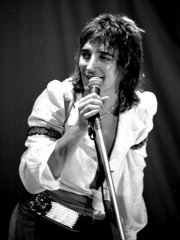
10. Rod Stewart (b. 1945)
With an HPI of 74.27, Rod Stewart is the 10th most famous British Singer. His biography has been translated into 67 different languages.
Sir Roderick David Stewart (born 10 January 1945) is a British singer and songwriter. Known for his distinctive raspy singing voice, Stewart is among the best-selling music artists of all time, having sold more than 120 million records worldwide. His music career began in 1962 when he took up busking with a harmonica. In 1963, he joined the Dimensions as a harmonica player and vocalist. In 1964, Stewart joined Long John Baldry and the All Stars before moving to the Jeff Beck Group in 1967. Joining Faces in 1969, he also launched a solo career, releasing his debut album, An Old Raincoat Won't Ever Let You Down, that year. Stewart's early albums were a fusion of rock, folk music, soul music, and R&B. His third album, 1971's Every Picture Tells a Story, was his breakthrough, topping the charts in the UK, US, Canada and Australia, as did its single "Maggie May". His 1972 follow-up album, Never a Dull Moment, also reached number one in the UK and Australia, while going top three in the US and Canada. Its single, "You Wear It Well", topped the chart in the UK and was a moderate hit elsewhere. Stewart had further UK top-ten hits and Faces broke up in 1975. Stewart's next few hit singles were ballads, with "Sailing", taken from the 1975 UK and Australian number-one album Atlantic Crossing, becoming a hit in the UK and the Netherlands (number one), Germany (number four) and other countries, but barely charting in North America. A Night on the Town (1976), his fifth straight chart-topper in the UK, began a three-album run of going number one or top three in the US, Canada, the UK and Australia with each release. That album's "Tonight's the Night (Gonna Be Alright)" spent almost two months at number one in the US and Canada, and made the top five in other countries. Foot Loose & Fancy Free (1977) contained the hit "You're in My Heart (The Final Acclaim)" as well as the rocker "Hot Legs". Blondes Have More Fun (1978) and its disco-tinged "Da Ya Think I'm Sexy?" both went to number one in Canada, Australia and the US, with "Da Ya Think I'm Sexy?" also hitting number one in the UK and the top ten in other countries. Stewart's albums regularly hit the upper levels of the charts in the Netherlands in the 1970s and in Sweden from 1975 onward. After a disco and new wave period in the late 1970s and early 1980s, Stewart's music turned to a soft rock/middle-of-the-road style, with most of his albums reaching the top ten in the UK, Germany and Sweden, but faring less well in the US. The single "Rhythm of My Heart" was a top five hit in the UK, US and other countries, with its source album, 1991's Vagabond Heart, becoming, at number ten in the US and number two in the UK, his highest-charting album in a decade. In 1993, he collaborated with Bryan Adams and Sting on the power ballad "All for Love", which went to number one in many countries. In the early 2000s he released a series of successful albums which interpreted the Great American Songbook. In 2008, Billboard magazine ranked Stewart the 17th most successful artist on the "Billboard Hot 100 All-Time Top Artists". A Grammy and Brit Award recipient, he was voted at No. 33 in Q Magazine's list of the Top 100 Greatest Singers of all time. As a solo artist, Stewart was inducted into the US Rock and Roll Hall of Fame in 1994 and the UK Music Hall of Fame in 2006, and he was inducted a second time into the Rock and Roll Hall of Fame in 2012 as a member of Faces. He has had 10 number-one albums and 31 top-ten singles in the UK, six of which reached number one. Stewart has had 16 top-ten singles in the US, with four reaching number one on the Billboard Hot 100. He was knighted in Britain's 2016 Birthday Honours for services to music and charity. Guitarist Steve Cropper said Stewart ranked alongside Otis Redding as "the finest singer with whom he had ever worked".
People
Pantheon has 422 people classified as British singers born between 1874 and 2001. Of these 422, 357 (84.60%) of them are still alive today. The most famous living British singers include Tom Jones, Brian Johnson, and Mick Jagger. The most famous deceased British singers include David Bowie, Marianne Faithfull, and Ozzy Osbourne. As of April 2024, 26 new British singers have been added to Pantheon including Doogie White, Tony Hadley, and Ian Watkins.
Living British Singers
Go to all RankingsTom Jones
1940 - Present
HPI: 82.08
Brian Johnson
1947 - Present
HPI: 78.66
Mick Jagger
1943 - Present
HPI: 77.49
Phil Collins
1951 - Present
HPI: 76.12
Kate Bush
1958 - Present
HPI: 75.15
Rod Stewart
1945 - Present
HPI: 74.27
John Lydon
1956 - Present
HPI: 73.88
Ian Gillan
1945 - Present
HPI: 73.85
Morrissey
1959 - Present
HPI: 73.10
Bonnie Tyler
1951 - Present
HPI: 72.13
Glenn Hughes
1951 - Present
HPI: 71.94
Robert Plant
1948 - Present
HPI: 71.68
Deceased British Singers
Go to all RankingsDavid Bowie
1947 - 2016
HPI: 80.18
Marianne Faithfull
1946 - 2025
HPI: 79.01
Ozzy Osbourne
1948 - 2025
HPI: 76.29
George Michael
1963 - 2016
HPI: 74.39
Joe Cocker
1944 - 2014
HPI: 74.23
Chris Rea
1951 - 2025
HPI: 68.53
Kathleen Ferrier
1912 - 1953
HPI: 68.43
Rick Parfitt
1948 - 2016
HPI: 65.43
MF Doom
1971 - 2020
HPI: 65.02
Liam Payne
1993 - 2024
HPI: 65.01
Dusty Springfield
1939 - 1999
HPI: 64.83
Paul Di'Anno
1958 - 2024
HPI: 64.66
Newly Added British Singers (2025)
Go to all RankingsDoogie White
1960 - Present
HPI: 53.14
Tony Hadley
1960 - Present
HPI: 51.86
Ian Watkins
1977 - 2025
HPI: 50.80
Ian Astbury
1962 - Present
HPI: 48.20
Ian Bostridge
1964 - Present
HPI: 47.09
Rollo Armstrong
1966 - Present
HPI: 44.58
Mandy Smith
1970 - Present
HPI: 43.73
Nick Holmes
1971 - Present
HPI: 42.26
Lola Young
2001 - Present
HPI: 41.00
Jenny Frost
1978 - Present
HPI: 39.40
Melanie Blatt
1975 - Present
HPI: 39.31
Lauren Mayberry
1987 - Present
HPI: 37.87
Overlapping Lives
Which Singers were alive at the same time? This visualization shows the lifespans of the 25 most globally memorable Singers since 1700.

